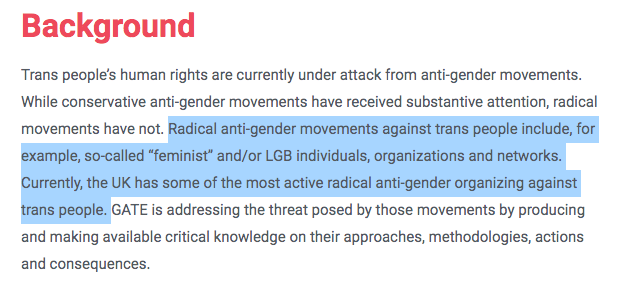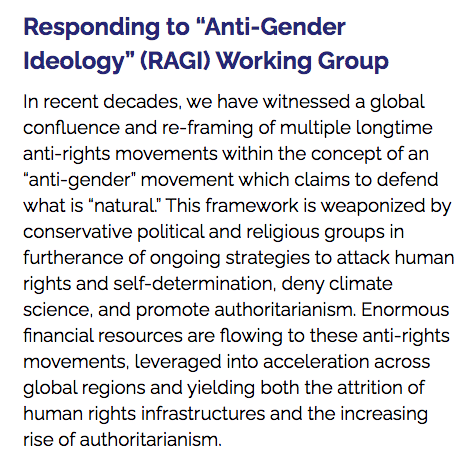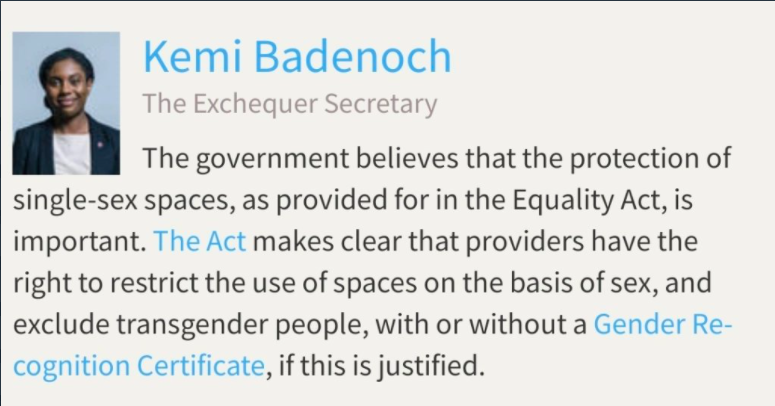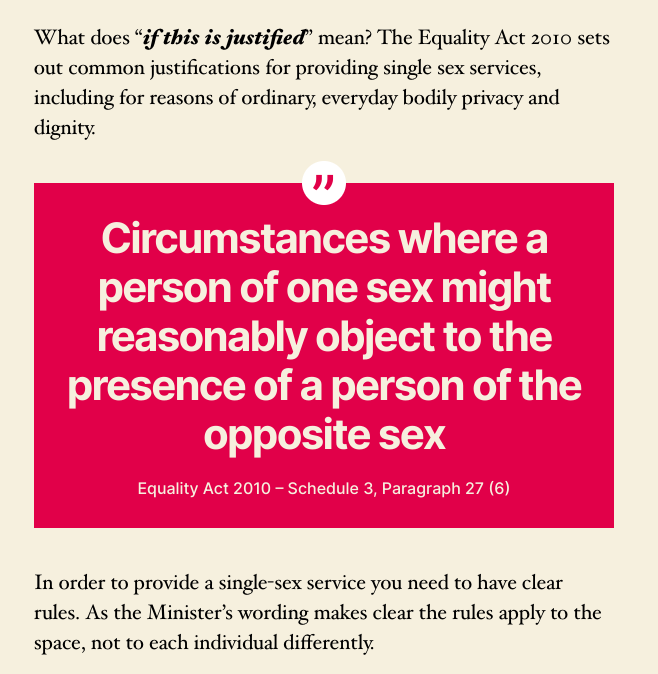
Live tweeting @EngenderScot webinar on the Equality Act 

First up Nicole Busby on sex and gender reassignment under the Equality Act
She wrote this paper
engender.org.uk/content/public…
"There are 9 protected characteristics". Good start!
She wrote this paper
engender.org.uk/content/public…
"There are 9 protected characteristics". Good start!
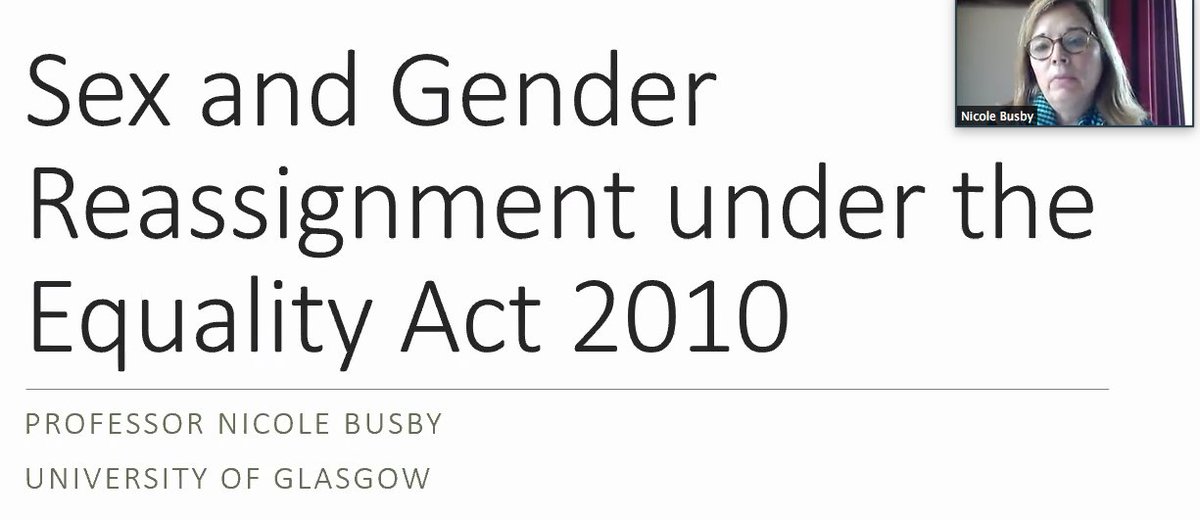
You don't have to have the protected characteristic to claim protection -- it could be discrimination (suffering a detriment) because of association with someone with a PC or the perception of having a PC
Now on to "sex" .... sex is generally used (apart from in 'gender pay gap')
No definition of "male" or "female" in the act itself
Are they intended to be applied on the basis of biology or sex stereotypes?
No definition of "male" or "female" in the act itself
Are they intended to be applied on the basis of biology or sex stereotypes?

Nicole says - if sex is reduced to purely biological it would give a lower level of protection.
Both their biological difference from men and the social construction of gender 'women's lived experience is different from that of mens'.
e.g. indirect discrimination based on age..
Both their biological difference from men and the social construction of gender 'women's lived experience is different from that of mens'.
e.g. indirect discrimination based on age..
'Job is for under 28 only' would indirectly discriminate against women due to childcare roles ("=gender")
or cooking classes in schools are just for girls ("=gender")
or cooking classes in schools are just for girls ("=gender")
GRA and EqA "provides different approaches to recognition of trans status"
GRA only available from 18. Equality Act provides no age criteria
GRA only available from 18. Equality Act provides no age criteria
Now getting down to the single sex exceptions - some forms of discrimination. She mentions single sex services (sch 3 part 7) and communal accomodation
(actually there are others - sports, charities, associations, single sex schools, and all women shortlists )
(actually there are others - sports, charities, associations, single sex schools, and all women shortlists )

Quotes the example of a single sex changing room in a clothes shop from the Guidance
"cubicles"
"cubicles"
Communal accommodation... the proportionality test.
The Code of Practice says "case by case basis" - is it proportionate to exclude the transsexual person
The Code of Practice says "case by case basis" - is it proportionate to exclude the transsexual person

The service provider will need to take account of self identification says Nicole.
Consider alternatives -- provision of single user facilities where that is a relevant alternative
(yes!)
Consider alternatives -- provision of single user facilities where that is a relevant alternative
(yes!)

The threshold of proportionality to meet that are high
Would need to show evidence or data
What are the potentially negative consequences for other users
Impact on the service - it would cease to be useful.
Not just because we seek to exclude "on trans status"
Would need to show evidence or data
What are the potentially negative consequences for other users
Impact on the service - it would cease to be useful.
Not just because we seek to exclude "on trans status"
"the act is fairly clear and comprehensive. It is important to take an inclusive approach to ensure it aligns with progressive social norms and a dynamic legal framework...
Updated terminology - the terminology could be update to clarify the available protection of trans, nonbinary and intersex
Updated guidance - need for improved definition of gender identity
Updated guidance - need for improved definition of gender identity
Could clarify sex and gender, but want it to be non restrictive! should strengthen protection for trans users.
There is little case law. Why haven't we got test cases. What are the unlitigated issues? What strategic litigation needed?
There is little case law. Why haven't we got test cases. What are the unlitigated issues? What strategic litigation needed?
Conflicting advice, confusing guidance. Lack of legal certainty. But changes are dependent on political will.
Next up Lynn Walsh from @EHRCScotland 

GRA self ID consultation in Scotland "We are supportive of those changes that are going through"
Our guidance could do with an update.
Lack of litigation does make a full understanding difficult
Our guidance could do with an update.
Lack of litigation does make a full understanding difficult
We are keen to encourage good relations, open dialogue, where we can bring different views together.
Next up @sharoncowan22
- there is not a lot of case law
- the Equality Act should be interpreted in an inclusive way as possible - weigh up competing interests in line with human rights
- there is not a lot of case law
- the Equality Act should be interpreted in an inclusive way as possible - weigh up competing interests in line with human rights

- you have to have a proportionate and legitimate aim. There is no case law but there is a lot of general other case law - e.g. over Article 8.
- it would be helpful to have strategic litigation
- it would be helpful to have strategic litigation
Terminology has changed in terms of what sex means and what gender means.
Law has been slow to take up changing meanings. Using the word gender in relation to gender discrimination is important to think about the protected criteria of sex. We have long read gender into sex
Law has been slow to take up changing meanings. Using the word gender in relation to gender discrimination is important to think about the protected criteria of sex. We have long read gender into sex
Keep that flexibility, dynamic legal framework in terms of how we operationalise sex and gender and gender reassignment
Q: Are there current proposals to change the EqA and how to make it work for women
Q: does being covered by s7 change a persons sex?
Q: How do apply the sex exceptions?
Q: How does EqA protect people with multiple characteristics
Q: does being covered by s7 change a persons sex?
Q: How do apply the sex exceptions?
Q: How does EqA protect people with multiple characteristics
Nicole - no proposals to change EqA. What wld make it better for women? Comparative elements are narrow. More group dynamic brought to provisions. It is narrowly applied. We need to look again. How to reconfigure it to more directly address challenges women face in day2day life
Multiple discrimination - isn't covered ....skipped over s7 question.
Lynn: no current proposals. I'd like to see equal pay reformed to make it work better. Multiple characteristics we are interested in.
Sports Q - i'm not an expert. Sports bodies look at it. Professional and amateur sport might be different. Fairness and safety might vary. ...
Sports Q - i'm not an expert. Sports bodies look at it. Professional and amateur sport might be different. Fairness and safety might vary. ...
Lynn - does s7 change a person's sex for the Equality Act.
No.
It is a separate characteristic
No.
It is a separate characteristic
@sharoncowan22 - I don't know about sports.
I didn't hear the question about s7
(it has now been read out twice)
Multiple discrimination question being answered again
I would like "sex and gender" in the act
I didn't hear the question about s7
(it has now been read out twice)
Multiple discrimination question being answered again
I would like "sex and gender" in the act
Q. Case by case - how can it be done in practice?
Sharon -
It could be individual or scenario
Say group work in a counselling service - scenario by scenario or a one to one basis
Either way
Sharon -
It could be individual or scenario
Say group work in a counselling service - scenario by scenario or a one to one basis
Either way
Service providers are very astute, they make decisions about risks all the time. So my instinct is to trust the service provider. They will know how to run their service. Trust them to do it.
Lynn... nothing on the case by case question.
EHRC thinks it sometimes about individuals, you would want limit exceptions. "Blanket exceptions will not work in law and are not where we should be starting from, so individual, but they could also have a policy"
EHRC thinks it sometimes about individuals, you would want limit exceptions. "Blanket exceptions will not work in law and are not where we should be starting from, so individual, but they could also have a policy"
Nicole... Nothing to add. I think they have covered everything.
@EngenderScot We've come to the end of the questions submitted in advance (they didn't ask mine...)
@EngenderScot We've come to the end of the questions submitted in advance (they didn't ask mine...)
• • •
Missing some Tweet in this thread? You can try to
force a refresh













